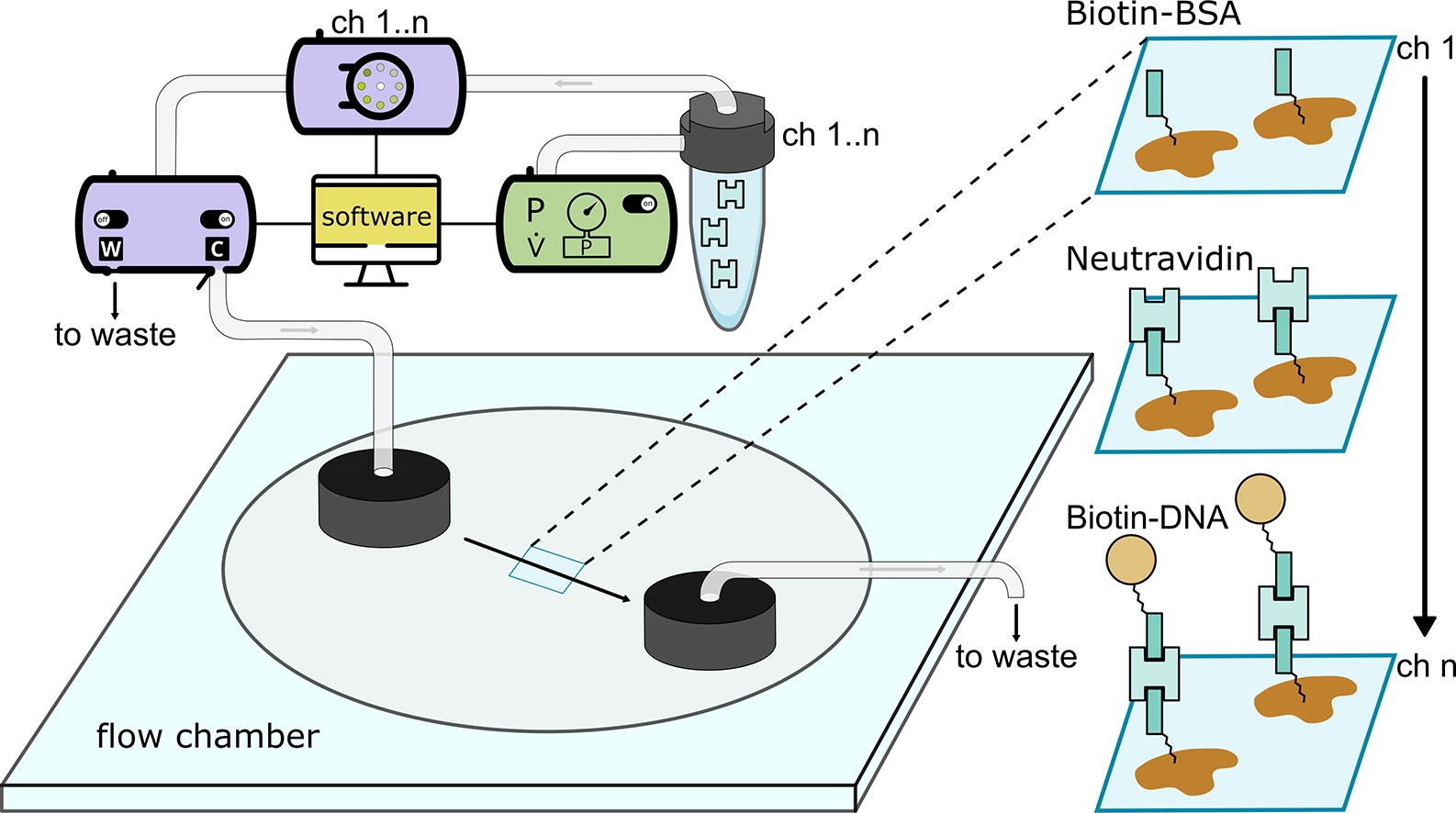The development of automated systems in laboratory settings enhances efficiency and reduces human error. The paper titled “Pressure-controlled microfluidics for automated single-molecule sample preparation” presents a cost-effective microfluidic solution designed to automate single-molecule experiments in fluorescence microscopy. This innovative approach focuses on providing a versatile system that can be easily adapted to various experimental needs while maintaining a high level of accuracy and reproducibility.
Key Features
- Automation of Sample Preparation: The system allows for the automated preparation of single-molecule samples, including the critical steps of passivation and immobilization, as well as buffer setting.
- Pressure-Controlled System: Utilizing a pressure-controlled mechanism, the device ensures stable volume flow rates, minimizing variability in experimental conditions.
- Cost-Effective Design: The system can be constructed with commercially available components at an approximate total cost of €7077.24, making it accessible for many laboratories.
- Adaptability: It accommodates various buffer reservoirs and can be configured for different flow chambers, such as Ibidi l-slide and Grace Bio-Labs HybriWell chambers.
- Additive Manufacturing Components: The design includes 3D-printed components, allowing for easy customization and modification to suit specific laboratory requirements.
Specifications Table
| Specification | Details |
|---|---|
| Device Name | Pressure-Controlled Microfluidics System |
| Total Cost | €7077.24 |
| Flow Chamber Compatibility | Ibidi l-slide, Grace Bio-Labs HybriWell |
| Control System | ElveFlow pressure controller |
| Printing Material | 3D-printed components |
| Automation Features | Automated passivation, immobilization, and buffer setting |
| Flow Rate Control | Pressure-controlled volume flow rates |
| Open Source Availability | Design files and software available online |
Conclusion
This pressure-controlled microfluidic system presents a robust and user-friendly approach to automating single-molecule sample preparation. By leveraging accessible technology and innovative design, it addresses common challenges in laboratory automation, particularly in the context of high-throughput applications. For further details and design files, the source is available at OSF.io(PIIS2468067223000329).

